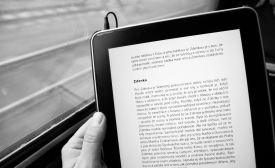counter terrorism
Why? Because it’s becoming pretty obvious that Isis’s most effective weapon is the smartphone. The group has been using Twitter, Facebook and YouTube to great effect, to create a digital broth that has both panicked and fascinated us. Their graphic videos make front page news and their deranged tweets sway international diplomacy. Social media strategists round the world must be watching in awe.
More prominent voices—today it’s the former head of the British army—are now advocating the previously unthinkable position that Western governments should open dialogue with Assad. I don’t see that happening, but as Reuters reports, the regime now seems to be expecting a quieter opening...
From the Israeli perspective, there’s some public diplomacy benefit here. The world is being somewhat distracted from what’s going on in Gaza, and now Israel is not the only country bombing Islamic extremists. But these are small comforts at best. Europe, in particular, seems to have gotten fed up with the IDF’s operations in Gaza, even as it declares its understanding for Israel’s right to defend itself. And despite the renewal of rocket fire, even the United States is expecting Israel to come to some long-term agreement with Hamas.
In the wired age, "Twitter bombs" that spam feeds with militant propaganda are as much a part of the modern jihadi’s arsenal as bullets. But with every burst of online messaging from extremists comes potential blowback.
The State Department is financing a new 24-hour satellite television channel in the turbulent northern region of Nigeria that U.S. officials say is crucial to countering the extremism of radical groups such as Boko Haram. The move signals a ramping up of U.S. counterinsurgency efforts to directly challenge the terrorist group, which abducted nearly 300 Nigerian schoolgirls in April.
The US State Department has launched an experimental unit to fight al-Qaeda ideologists on Twitter across the web. But can it actually stop terrorism?

PDiN Monitor Editorial Staff
Sherine B. Walton, Editor-in-Chief
Naomi Leight, Managing Editor
PDiN Contributing Researchers
Taleen Ananian
Paul Rockower
Di Wu







